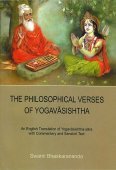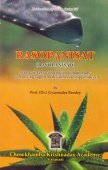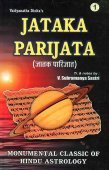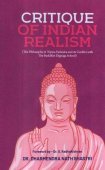Vi, Vī: 17 definitions
Introduction:
Vi means something in Buddhism, Pali, Hinduism, Sanskrit, the history of ancient India, Marathi, Jainism, Prakrit, Hindi, Tamil. If you want to know the exact meaning, history, etymology or English translation of this term then check out the descriptions on this page. Add your comment or reference to a book if you want to contribute to this summary article.
Vi has 18 English definitions available.
Images (photo gallery)
(+25 more images available)
Languages of India and abroad
Sanskrit dictionary
[Deutsch Wörterbuch]
Source: Cologne Digital Sanskrit Dictionaries: Böhtlingk and Roth Grosses Petersburger WörterbuchVi (वि):—
--- OR ---
Vi (वि):—
--- OR ---
Vi (वि):—3. Verbalwurzel s. vī .
--- OR ---
Vi (वि):—4. n. zu einer Etymologie gebildet, angeblich so v. a. anna [The Śatapathabrāhmaṇa 14, 8, 13, 3.]
--- OR ---
Vī (वी):—
--- OR ---
Vī (वी):—2. (= 1. vī) adj. in 2. a, deva, pada . m. = gamana [EKĀKṢARAK. im Śabdakalpadruma]
--- OR ---
Vī (वी):—
--- OR ---
Vī (वी):—4. (= 3. vī) adj. in 1. a (nicht erregt, nicht begeistert), atharvī aṣṭrā (s. Nachträge), takva, parṇa .
--- OR ---
Vī (वी):—5. stellen wir auf Grund von [Ṛgveda 10, 33, 2] auf in der Bed. (ängstlich) mit den Flügeln schlagen; hierher vielleicht vi, vayas Vogel. intens. flattern: verna vevīyate ma.iḥ wie ein Vogel flattert d. h. bebt oder zagt mein Herz [Ṛgveda 10, 33, 2.] — ā intens. trepidare: pu.āsya saṃvatsa.ādgṛ.a āvevīran ehe ein Jahr vergeht soll man in seinem Hause verzagen [Taittirīyasaṃhitā 3, 2, 9, 5.] — Vgl. vevī .
--- OR ---
Vī (वी):—6. s. vyā .
--- OR ---
Vī (वी):—7. (= 6. vī, vyā) adj. in hiraṇya .
--- OR ---
Vī (वी):—8. f. zu 1. vi Vogel [COLEBR.] und [Loiseleur Deslongchamps] zu [Amarakoṣa 2, 5, 33.]
--- OR ---
Vī (वी):—9. = 2. vi in vīkāśa, taṃsa, nāha, barha, mārga, rudh und vadha .
--- OR ---
Vī (वी):—2. appetens [Ṛgveda 1, 143, 6.]
--- OR ---
Vī (वी):—3. mit ā, streiche am Ende: Vgl. [2.] āvī . — pra, rathātpravītātpatitaḥ in Gang gesetzt [Patañjali] [?a. a. O.1,281,b. 282,a.]
--- OR ---
Vī (वी):—5. mit ā vgl. āvī .
Sanskrit, also spelled संस्कृतम् (saṃskṛtam), is an ancient language of India commonly seen as the grandmother of the Indo-European language family (even English!). Closely allied with Prakrit and Pali, Sanskrit is more exhaustive in both grammar and terms and has the most extensive collection of literature in the world, greatly surpassing its sister-languages Greek and Latin.
See also (Relevant definitions)
Starts with (+9980): Bileshaya, Bilva, Bilvamangala, Bilvapatra, Bimba, Varisa, Vi hufng trung, Vi-jnapi, Via, Via, Viabbha, Viada, Viada, Viadana, Viadda, Viaddha, Viaddha, Viaddhaka, Viaddhu, Viaddi.
Ends with (+2574): A-vinapavi, Abhavi, Abhibhavi, Abhidhavi, Abhinavi, Abhinnadashapurvi, Abhisametavi, Abhisevi, Abhitthavi, Abhivi, Abhracchavi, Abovi, Abravi, Acalavi, Acatikkilavi, Accarigavi, Accasavi, Acchavi, Acuttavi, Acyutapadavi.
Full-text (+15651): Avi, Lavi, Livi, Kokanadacchavi, Kavi, Divi, Darava, Rajavi, Padavi, Aikshava, Pavin, Hambharavaviravin, Bhavabhibhavin, Viravin, Duhkhajivin, Upajivin, Sauvastava, Didivi, Sthavi, Bharavi.
Relevant text
One of your search terms exceeds the minimun character amount per search term. This amount currently equals 2.
No search results for Vi, Vī, Vi-i; (plurals include: is) in any book or story.
Related products
(+9 more products available)











